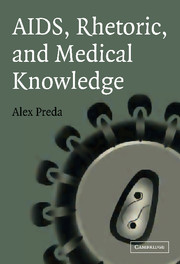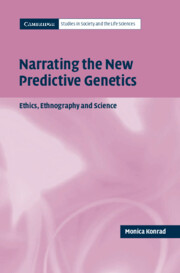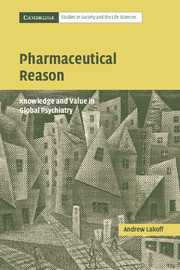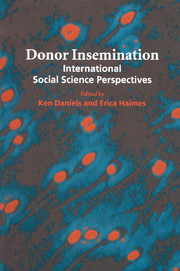AIDS, Rhetoric, and Medical Knowledge
Examining the formation of scientific knowledge about the AIDS epidemic in the 1980s, Alex Preda highlights the metaphors, narratives, and classifications which framed scientific hypotheses about the nature of the infectious agent and its transmission. Preda compares these arguments with those used in the scientific analysis of SARS. He demonstrates how scientific knowledge about epidemics is shaped by cultural narratives and categories of social thought through a detailed review of biomedical publications.
- First book to examine the cultural assumptions at the core of scientific knowledge about AIDS
- Compares scientific knowledge about AIDS with scientific knowledge about SARS
- Discusses the consequences of rhetoric for 'expert democracy' and policy-making
Reviews & endorsements
"The style in which the topic of AIDS is presented by Preda seems best suited for the academicians interested in developing theory and logic models for AIDS prevention, education and advocacy.... This book illustrates how important culture is within prevention and health policies with respect to how scientific research is organized and funded." - Journal of Sociology and Social Welfare
Product details
November 2004Hardback
9780521837705
290 pages
231 × 157 × 25 mm
0.515kg
3 b/w illus. 2 tables
Available
Table of Contents
- Introduction: AIDS and scientific knowledge
- 1. Making up the rules of seeing: opportunistic infections and the new syndrome
- 2. The economy of risk categories
- 3. The etiologic agent and the rhetoric of scientific debate
- 4. Retrovirus vs. Retrovirus: the arguments for HTLV-III, LAV, and HIV
- 5. The spatial configurations of 'AIDS Risk'
- 6. Who is how much? from qualities to quantities of risk
- 7. In lieu of a conclusion: do rhetorical practices matter?
- References
- Notes.







